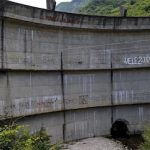Technology neutrality can activate more than ten times greater sustainable development potential than current technology-forcing policies, writes independent researcher Schalk Cloete. In the second part of a series which follows an article about the dangers of technology-forcing of wind and solar power and battery electric vehicles, Cloete reviews eight alternative sustainable development solutions that he believes have greater climate mitigation … [Read more...]
11 ways the Paris climate deal is working in the real world
As climate talks stall, it’s clear the UN process is no longer the major driving force of the climate transition, write Soila Apparicio, Megan Darby and Karl Mathiesen of Climate Home News. While diplomates are negotiating the complex rules of the Paris deal, businesses, researchers, governments and citizens are coming up with new ways to move the climate to a safer place. Courtesy: Climate Home News … [Read more...]
For Eastern Europe, controllable renewable power is a good alternative for new nuclear power
Poland, Slovakia, the Czech Republic and Hungary are all planning to build new nuclear power plants. But according to a new study by Energy Brainpool, commissioned by Greenpeace Energy, they could also opt for controllable renewable power plants. These are cost-competitive with nuclear, at least as reliable, and also allow for energy independence, write Philipp Heidinger, Fabian Huneke and Simon Göß from Energy Brainpool. … [Read more...]
‘Tsunami’ of hydropower dam building threatens Europe’s last wild rivers – campaigners
The transition to low-carbon energy sources in the Balkans could cause irreversible environmental damage, environmentalists fear. Proposed hydropower dam constructions endanger Europe’s last wild rivers and some diversity hotspots, writes Umberto Bacchi of Thomson Reuters Foundation. Courtesy: Thomson Reuters Foundation. … [Read more...]
How the European Commission, European Court of Justice and Member States are scaring away investors in the energy sector
Both EU institutions and member states are actively undermining the investment climate in the energy sector, writes Alan Riley, Senior Fellow at the Institute for Statecraft in London. The European Commission is undermining investor protection by its determination to apply EU state aid law to arbitration awards. Member States are disrupting investor expectations through arbitrary political interventions in the energy sector. Worst of all, the … [Read more...]
EU policy must wake up to carbon dioxide removal
Most scenarios to meet the Paris Agreement’s targets require negative emissions technologies. However, carbon dioxide removal is not part of the EU’s climate policy yet. Its integration presents a serious challenge to the EU’s low-carbon policy paradigm and experience, write Oliver Geden of the German Institute for International and Security Affairs, Vivian Scott of the University of Edinburgh and James Palmer of the University of Bristol. … [Read more...]
The dangers of green technology-forcing
Current technology-forcing policies imply that wind and solar power, combined with battery electric vehicles, represent our only viable energy future, observes independent researcher Schalk Cloete. Given the fundamental limitations of these technologies, this is a very dangerous notion, he argues. A shift to technology-neutral policies is needed, especially in developing nations. … [Read more...]
German electricity market in 2017: records for battery storage and redispatch
Renewable energy generation is still on the rise in Germany, though at a much lower pace than in the years around 2010, writes Marius Buchmann of Jacobs University in a detailed overview of the German electricity market in 2017. Costs of the feed-in tariff are stagnating, notes Buchmann, but redispatch costs which grid operators incur to keep the system stable, reached a new record far above €1 billion. Courtesy of Buchmann’s blog Enerquire. … [Read more...]
In the new era of inexpensive renewables, policy should remove systemic obstacles
As the cost of renewables goes down, the old approach of subsidizing generation no longer makes sense, writes Johannes Urpelainen of The Center on Global Energy Policy. We need a revolution in energy policy. Article courtesy The Center on Global Energy Policy. … [Read more...]
How Shell’s new Sky scenario achieves net zero emissions
In Shell's recently published Sky climate scenario, the energy system reaches net zero emissions by 2070 using several technologies that are at an early stage. David Hone, Chief Climate Change Advisor at Shell, explains how this would work and why Shell regards this scenario as plausible. Courtesy David Hone’s Shell Climate Change blog … [Read more...]
India slashes plans for new nuclear reactors by two-thirds
India has decided to cut its planned nuclear power plant construction by two-thirds. This will further expand the country’s use of coal for electrical power generation, writes Dan Yurman, nuclear energy specialist and author of the Neutron Bytes blog. … [Read more...]
Tackling climate change in Poland: 40% fewer emissions, $26 billion annual savings by 2050
Poland must choose whether it wants to continue pouring money into an unprofitable and polluting industry, shift to (mostly Russian) natural gas or embrace clean technology that improves energy security and saves money and lives, write Jeffrey Rissman and Robbie Orvis of Energy Innovation. This US-based think tank partnered with the Polish National Energy Conservation Agency (KAPE) and European Climate Foundation (ECF) to develop a tool to help … [Read more...]
Poland’s love affair with coal: can the EU do anything about it?
The Polish government’s strong commitment to coal goes against EU policy direction and against market conditions, write Anna Mikulska of the Baker Institute’s Center for Energy Studies and Eryk Kosinski of Adam Mickiewicz University. But coal has a special place in the nation’s collective heart. To wean Poland off coal will require EU support to coal-dependent regions and for alternative energy sources, the authors argue. … [Read more...]
Shell’s new SKY scenario shows how to meet the goals of the Paris agreement
Shell has launched a new scenario that illustrates a "technically possible but challenging pathway" for society to meet the goals of the Paris Agreement on climate change. The Sky outlook sees a rapid energy transition taking place over 50 years reaching net-zero emissions in the energy system by 2070. Courtesy David Hone’s Shell Climate Change blog. … [Read more...]
Japan’s new energy strategy should boost both renewables and nuclear power
Japan needs both renewables and nuclear energy in its energy mix to reduce dependence on imports and lower greenhouse gas emissions, writes David Livingston of the Atlantic Council Global Energy Center. According to Livingston, it is in the interest of the international community that the country's new energy strategy, which is expected in the middle of this year, should boost their share in the energy mix. … [Read more...]
- « Previous Page
- 1
- 2
- 3
- 4
- 5
- …
- 26
- Next Page »
















